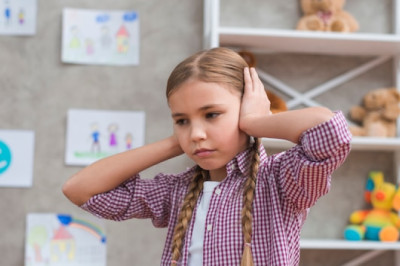Post-Traumatic Stress Disorder (PTSD) is a mental health condition triggered by experiencing or witnessing a terrifying event. Symptoms may include flashbacks, nightmares, severe anxiety, as well as uncontrollable thoughts about the event. Fortunately, there are various forms of help available for those struggling with PTSD, aimed at helping individuals regain control over their lives. This article explores six key types of support and treatment options that can make a significant difference.
Psychotherapy
Psychotherapy, also known as talk therapy, is one of the most effective treatments for PTSD. It involves talking with a mental health professional to process the traumatic event and learn coping strategies. There are several types of psychotherapy used for PTSD, including cognitive-behavioral therapy (CBT), which helps patients recognize and change harmful thought patterns. Another approach is EMDR (Eye Movement Desensitization and Reprocessing), which helps individuals process and make sense of their trauma through guided eye movements. Psychotherapy sessions can be conducted one-on-one, with family, or in group settings, providing a supportive environment for recovery.
Medication
Medications can play a crucial role in managing PTSD symptoms, especially when combined with psychotherapy. Antidepressants, such as selective serotonin reuptake inhibitors (SSRIs) and serotonin-norepinephrine reuptake inhibitors (SNRIs), are commonly prescribed to help alleviate symptoms of depression and anxiety associated with PTSD. These medications can help improve mood, sleep, and concentration. However, it's important for individuals to work closely with their healthcare provider to find the medication that works best for them, considering possible side effects and interactions with other medications.
Support Groups
Joining a support group can be incredibly beneficial for individuals with PTSD. These groups provide a safe space where people can share their experiences and feelings with others who understand what they're going through. Support groups can help reduce feelings of isolation, build a community of support, and share coping strategies. Many organizations offer specialized groups for different types of trauma, such as combat veterans, survivors of sexual assault, or those who have experienced natural disasters. Participating in these groups can foster a sense of belonging and aid in the healing process.
Mindfulness and Relaxation Techniques
Mindfulness and relaxation techniques can be effective in reducing symptoms of PTSD by helping individuals focus on the present moment and manage their stress levels. Practices such as meditation, deep breathing exercises, and yoga can help calm the mind and body, reducing feelings of anxiety and improving overall well-being. These techniques can be learned through classes, workshops, or even online tutorials, making them accessible to anyone looking to incorporate them into their recovery process.
Service Animals
Service animals, particularly dogs, have been recognized for their ability to assist individuals with PTSD. These animals are trained to perform specific tasks that can help mitigate symptoms of the disorder. For example, they can provide comfort during anxiety attacks, remind their owners to take medication, or even wake them from nightmares. The presence of a service animal can also offer companionship, reduce stress, and increase feelings of safety and security. Obtaining a service animal requires a recommendation from a healthcare provider and should be considered based on individual needs and lifestyle.
Lifestyle Changes
Adopting healthy lifestyle changes can significantly impact the management of PTSD symptoms. Regular physical activity, a balanced diet, sufficient sleep, and avoiding alcohol and drugs can all contribute to better mental health. Engaging in hobbies and activities that bring joy and relaxation can also be therapeutic. Additionally, establishing a routine can provide a sense of stability and normalcy. While lifestyle changes alone may not cure PTSD, they can complement other treatment methods and support overall well-being.











Comments
0 comment